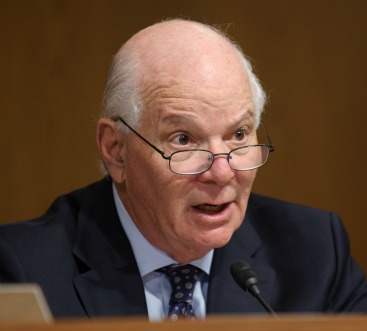Mr. President, today is the 37th anniversary of the Helsinki process. Starting with the signing of the Helsinki Final Act on August 1, 1975, this process began as an ongoing conference which helped end the Cold War and reunite Europe. It has continued as a Vienna-based organization that today seeks to resolve regional conflicts and promote democratic development and the rule of law throughout the region.
While serving in both chambers of the U.S. Congress, it has been a unique and rewarding privilege to engage in this diplomatic process and its parliamentary component as a member and chairman of the U.S. Helsinki Commission, with the goal of improving the lives of everyday people. While they may be citizens of other countries, promoting their human rights and fundamental freedoms helps us to protect our own. It is, therefore, in our national interest to engage in this process.
On this anniversary, however, I do want to focus on three U.S. citizens who suffered the ultimate violation of their human rights when they were taken into a field and shot, deliberately murdered, in July 1999 by a special operations unit under the control the Interior Ministry in Serbia. They were brothers: Ylli, Agron and Mehmet Bytyqi.
The Bytyqi brothers were Albanian-Americans from New York. Earlier in 1999, they went to Kosovo to fight as members of the Kosovo Liberation Army in a conflict which eventually prompted a NATO military intervention designed to stop Serbian leader Slobodan Milosevic and his forces. When the conflict ended, the Bytyqi brothers assisted ethnic Roma neighbors of their mother in Kosovo by escorting them to the Serbian border. Accidently straying into Serbian territory, they were arrested and sentenced to 2 weeks in jail for illegal entry. When released from prison, they were not freed. Instead, the Bytyqi brothers were transported to an Interior Ministry training camp in eastern Serbia, where they were brutally executed and buried in a mass grave with 75 other ethnic Albanians from Kosovo. Two years later, after the fall of the Milosevic regime, their bodies were recovered and repatriated to the United States for burial. Ylli, Agron and Mehmet were never given a fair and public trial, an opportunity to defend themselves, or any semblance of due process. Their post-conflict, extrajudicial killing was cold-blooded murder.
In the last decade Serbia has made a remarkable recovery from the Milosevic era. I saw this myself last year when I visited Belgrade. This progress, however, has not sufficiently infiltrated the Interior Ministry, affording protection to those who participated in the Bytyqi murders and other egregious Milosevic-era crimes. Nobody has been held accountable for the Bytyqi murders. Those in command of the camp and the forces operating there have never been charged.
The same situation applies to the April 1999 murder of prominent journalist and editor Slavko Curuvija, who testified before the Helsinki Commission on the abuses of the Milosevic regime just months before. There needs to be justice in each of these cases, but together with other unresolved cases they symbolize the lack of transparency and reform in Serbia’s Interior Ministry to this day. Combined with continued denials of what transpired under Milosevic in the 1990s, including the 1995 genocide at Srebrenica in neighboring Bosnia, these cases show that Serbia has not completely put an ugly era in its past behind it. For that reason, not only does the surviving Bytyqi family in New York, as well as the friends and family of Slavko Curuvija, still need to have the satisfaction of justice. The people of Serbia need to see justice triumph in their country as well.
I want to thank the U.S. Mission to the OSCE in Vienna, which under the leadership of Ambassador Ian Kelly continues to move the Helsinki process forward, for recently raising the Bytyqi murders and calling for justice. I also want to commend the nominee for U.S. Ambassador to Serbia, Michael David Kirby, for responding to my question on the Bytyqi and Curuvija cases at his Foreign Relations Committee hearing by expressing his commitment, if confirmed, to make justice in these cases a priority matter. On this anniversary of the Helsinki Final Act, I join their call for justice.









